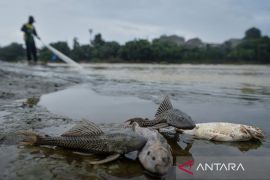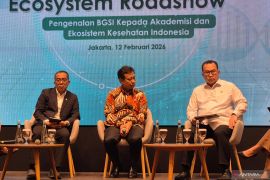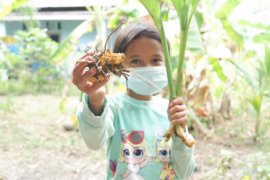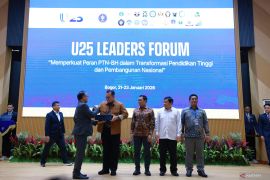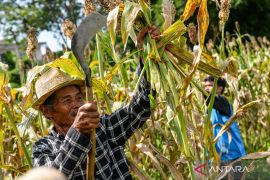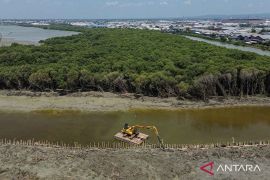Priority has also been accorded to disease detection methods and antimicrobial resistance to maintain the level of aquatic food productivity.
"Managing the health of farmed fish is important because disease outbreaks in fish farming can reduce productivity and profitability," she noted in a statement from her office on Friday.
Lusiastuti remarked that liquid vaccines for fish present significant logistical challenges, being prone to damage and impracticality during storage and transportation processes.
Hence, she developed a chitosan-coated freeze-dried vaccine that is considered to have several advantages.
"It is easy to mobilize and maintain the quality and effectiveness of vaccines at high temperatures for long-distance transportation," she explained.
According to Lusiastuti, aquatic animals, such as fish, are a source of animal protein with lower fat than any animal protein sources. Fish provides Omega-3, an essential nutrient the human body cannot naturally produce, which is crucial in preventing stunting.
Related news: BRIN conducts phytoremediation to conserve endangered aquatic plants
Furthermore, she noted that fish with edible bones, such as sardines, are a valuable source of vitamin D. High fish consumption has been associated with a reduced risk of several autoimmune diseases.
Apart from vaccines, Lusiastuti also underscored the need for development and research collaboration on zoonotic diseases, which have reappeared due to contaminants such as toxins, heavy metals, hormones, pesticides, and other chemicals.
Meanwhile, Forest Ecosystem Controller of the Ministry of Forestry, Dedi Chandra, emphasized the importance of aquatic food security amid the threat of climate change.
He drew attention to the fish health standards from the World Organization for Animal Health (WOAH), which include disease prevention, early detection, reporting, and control to ensure the safety of international trade in fishery products.
"The purpose of aquatic standards is to improve the safety and health of aquatic animals in the world," he stated.
Chandra noted that these standards aim to ensure the safety of international trade in aquatic animals and aquatic animal products while avoiding unjustified sanitary barriers.
Related news: BKKBN promotes fish consumption to tackle stunting
Related news: Consumption of fish, GDP positively correlated: Indonesian minister
Translator: Farhan Arda, Resinta Sulistiyandari
Editor: Yuni Arisandy Sinaga
Copyright © ANTARA 2024

